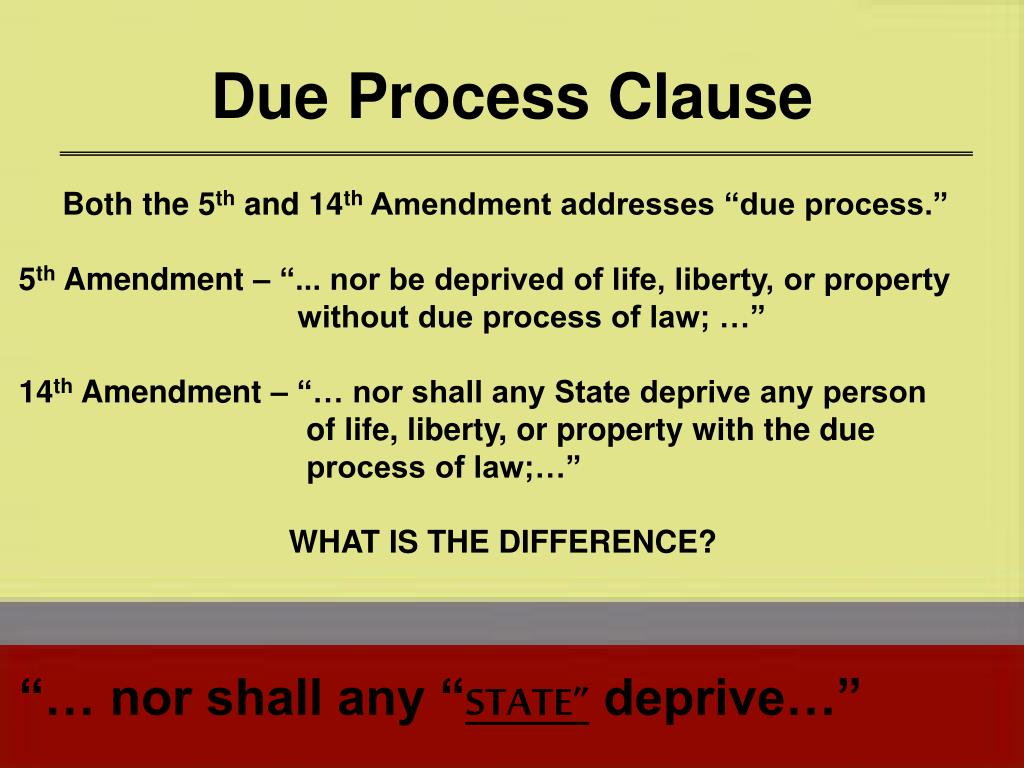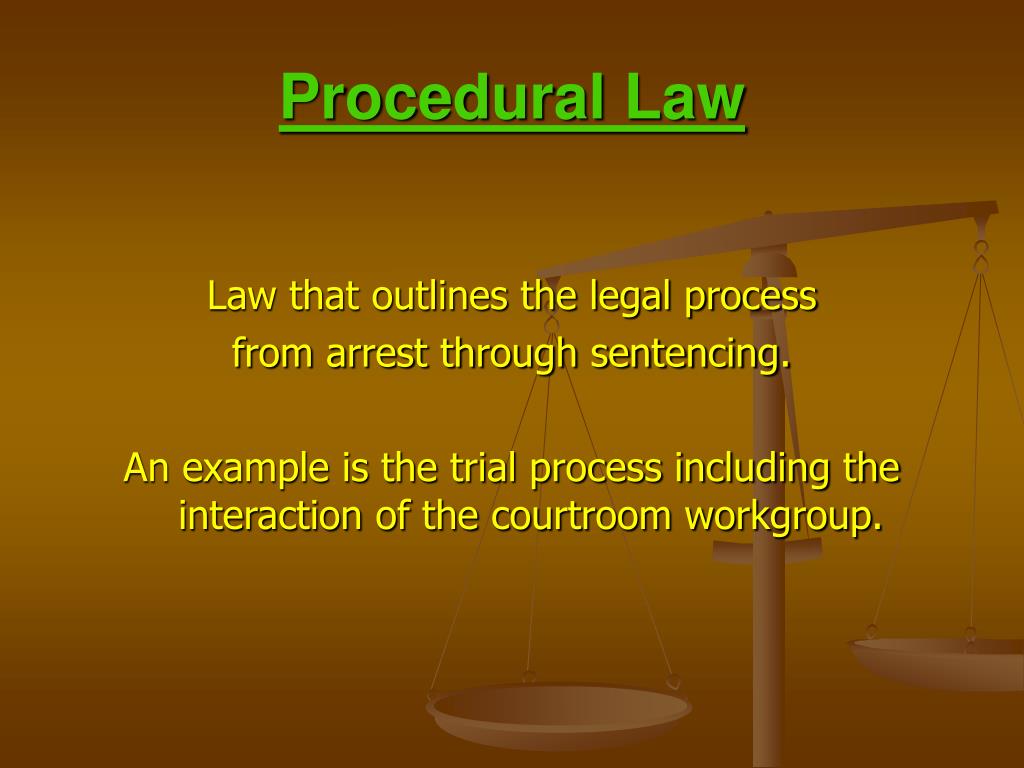

The rights of "discrete and insular minorities".
PROCEDURAL DUE PROCESS AMENDMENT FREE
The right to participate in the political process, such as the rights of voting, association, and free speech.Rights enumerated in and derived from the first eight amendments to the Constitution.Today, the Supreme Court provides special protection for three types of rights under substantive due process in the Fourteenth Amendment – an approach which originated in United States v. If they were not protected by the federal courts' doctrine of substantive due process, they could nevertheless be protected in other ways for example, some rights are protected by other provisions of the state or federal constitutions or by legislatures. Since then, the Supreme Court has decided that numerous other freedoms, even if they are not in the text of the Constitution, are protected by it. 1897–1937), when substantive due process was used to strike down minimum wage and labor laws to protect freedom of contract. The courts have largely abandoned the Lochner era approach (c. Some of the rights have been said to be "deeply rooted" in American history and tradition that phrase was used for rights related to the institution of the family. The rights have not been clearly identified and the Supreme Court's authority to enforce the unenumerated rights is unclear.

The courts have viewed the Due Process Clause and sometimes other clauses of the Constitution as embracing the fundamental rights that are "implicit in the concept of ordered liberty". Constitution for such protection and that such liberties should be left under the purview of the more politically accountable branches of government. Critics of substantive due process decisions usually assert that there is no textual basis in the U.S. In successful cases, the Supreme Court recognizes a constitutionally based liberty and considers laws that seek to limit that liberty to be unenforceable or limited in scope. Much substantive due process litigation involves legal challenges about unenumerated rights that seek particular outcomes instead of merely contesting procedures and their effects. The term "substantive due process" itself is commonly used in two ways: to identify a particular line of case law and to signify a particular political attitude toward judicial review under the two due process clauses. The term was first used explicitly in 1930s legal casebooks as a categorical distinction of selected due process cases, and by 1952 had been mentioned twice in Supreme Court opinions. In contrast, substantive due process protects individuals against majoritarian policy enactments that exceed the limits of governmental authority: courts may find that a majority's enactment is not law and cannot be enforced as such, regardless of whether the processes of enactment and enforcement were actually fair. Such protections, for example, include sufficient and timely notice of why a party is required to appear before a court or other governmental body, the right to an impartial trier of fact and trier of law, and the right to give testimony and present relevant evidence at hearings. Procedural due process protects individuals from the coercive power of government by ensuring that adjudication processes, under valid laws, are fair and impartial. The distinction arises from the words "of law" in the phrase "due process of law". Substantive due process is to be distinguished from procedural due process. In recent opinions, Justice Clarence Thomas has called on the Supreme Court to reconsider all of its rulings that were based on substantive due process. Whether the Fifth or Fourteenth Amendments were intended to serve that function continues to be a matter of scholarly as well as judicial discussion and dissent. Substantive due process demarks the line between those acts that courts hold to be subject to government regulation or legislation and those that courts place beyond the reach of governmental interference.

Constitution, which prohibit the federal and state governments, respectively, from depriving any person of "life, liberty, or property, without due process of law". Courts have asserted that such protections come from the due process clauses of the Fifth and Fourteenth amendments to the U.S. Substantive due process is a principle in United States constitutional law that allows courts to establish and protect certain fundamental rights from government interference, even if only procedural protections are present or the rights are unenumerated elsewhere in the U.S.


 0 kommentar(er)
0 kommentar(er)
